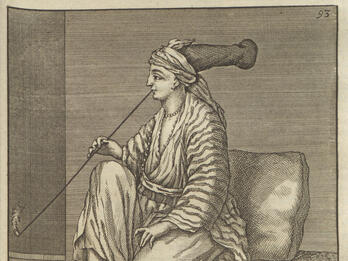Saliḥ ibn Yaḥya
The Yemenite rabbi, judge, scholar, and liturgical poet Saliḥ ibn Yaḥya lived in San‘a, where he was an important communal figure and an authority on the rules of ritual slaughter. Saliḥ, who was reputedly a miracle worker, survived the devastating Mawza‘ exile (1679–1680), during which the country’s Jews were exiled to the barren Mawza‘ region; they were subsequently permitted to return a year later. The reverberations of this tragedy are evident in his liturgical poems, which deal extensively with the topic of redemption. Ten of these poems can be found in the Yemenite maḥzor. Several works by Saliḥ have survived in manuscript and were published for the first time at the end of the twentieth century. These include ethical treatises, a work on ritual slaughter, notes and comments on the Shulḥan ‘arukh, moral reproaches (tokhaḥot) designed to rouse Jews to repent, and halakhic rulings. His writings also demonstrate an interest in kabbalah. Saliḥ’s grandson, a great scholar and rabbi whose halakhic authority extended beyond Yemen, reaching as far as India, often quotes his grandfather, who was also his teacher, in particular with regard to the rules of ritual slaughter.


